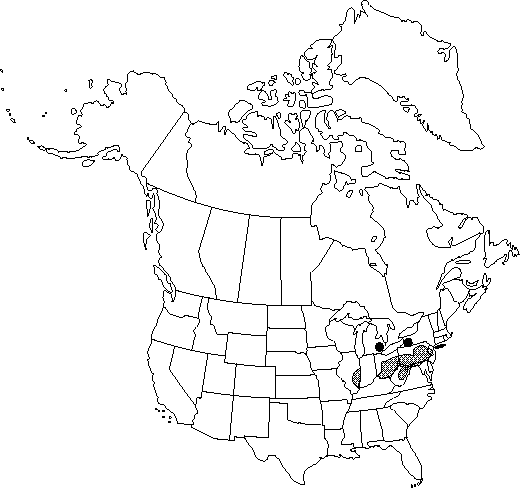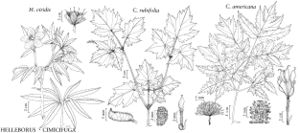Helleborus viridis
Sp. Pl. 1: 557. 1753.
Revision as of 21:50, 5 November 2020 by imported>Volume Importer
Herbs, 1.2-3.5 dm. Stems fluted and ridged. Leaves 2-5 or more; basal leaves with petioles to 30cm; blades to 40cm wide, lobes 6-15, 2-cleft or incised, 6-21 × 1.5-4.2 cm, margins sharply serrate; cauline leaves similar to basal but smaller, sessile or short-petioled. Inflorescences: peduncles 2-5 cm. Flowers pendent, 35-60 mm diam.; sepals scarcely imbricate, 9-20 mm wide; petals upwardly curved, cornucopia-like with involute margins. Follicles 3-6, connate at base, swollen; body 14-25 mm; beak persistent.
Phenology: Flowering winter–early spring (Dec–Mar).
Habitat: Waste places, abandoned gardens, shaded roadsides, and calcareous woodlands
Elevation: 0-400m
Distribution

Introduced; Ill., Md., Mich., N.J., N.Y., Ohio, Pa., W.Va., Europe.
Discussion
This species is not as commonly planted as it once was, and most records are old.
Selected References
None.
Lower Taxa
None.
